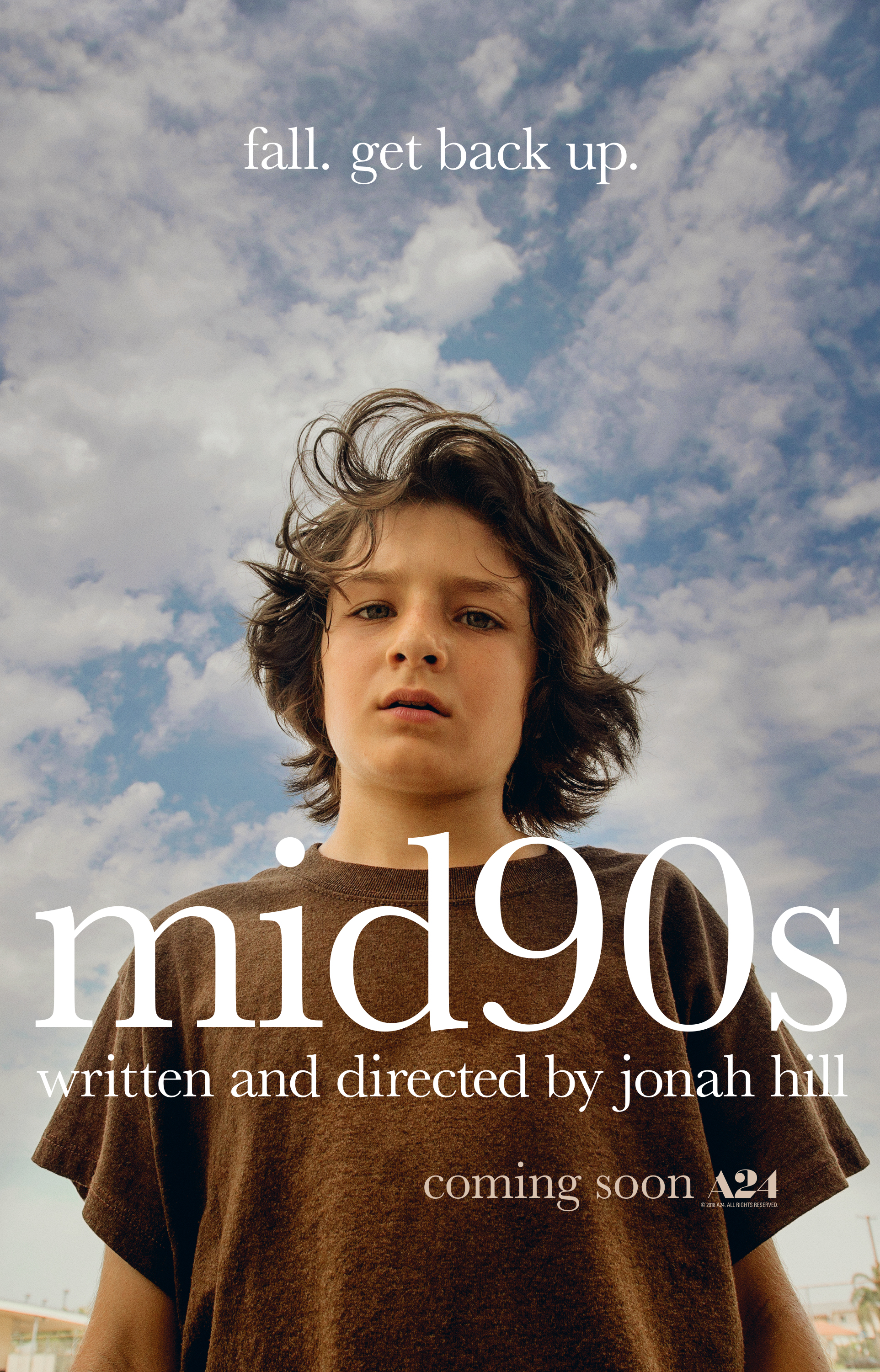Jonah Hill’s directorial debut came in the form of a captivating coming-of-age movie by the name Mid90s. The film follows Stevie (played by Sunny Suljic), a 13-year-old LA boy who desperately tries to fit in wherever he can, and eventually joins a group of teenagers who spend their time skateboarding, drinking, smoking, and exploring the city. At home, Stevie lives with his single mother, Dabney (played by Katherine Waterston), and an abusive older brother, Ian (played by Lucas Hedges). For the most part, the film feels more like “a day in the life of a ’90s teenage skateboarder” — that is to say that there isn’t much of a storyline. Of course, there are significant events that occur between the beginning of the film and the ending as the characters go through changes. The most notable character change is in Stevie, as he goes from being hesitant, considerate, and wanting to fit in, into a more confident drinking, smoking, cursing skater who feels comfortable in his group of friends. That being said, the film is, at times, tough to watch since it’s difficult to feel connected to the characters as they traverse what could be considered troubling decisions. The relatability in the film comes from the characters’ motivations and aspirations, as opposed to their actions. While each character has their own set of unique qualities and traits, they all have a desire to escape their reality and become something more than their environment.
You would think the movie was going to be about Stevie’s relationship with his brother Ian based on the opening of the film; however, this is not the case by any means. Sure, Ian has a couple of defining character traits (extremely serious, always drinking orange juice, protective of his possessions) and Stevie and Ian have a handful of loaded interactions that could be analyzed, but these interactions are not as telling as the rest of Stevie’s experiences. At one point in the film, Stevie and his friends are hanging out on a sidewalk when F**ks**t (actually one of the character’s names. I’m serious.) accidentally hits a passerby with a skateboard while doing a trick, who is revealed to be Ian. Ian is initially angered by this, but after making eye contact with Stevie, Ian is dumbfounded and remains silent. F**ks**t is not apologetic, but confrontational, attempting to goad Ian into fighting him. After an awkwardly lengthy amount of time, Ian just silently walks away. Is Ian actually not as aggressive as he pretends to be or is he protecting Stevie’s social life by avoiding putting him in a tough situation? It is unclear. Later in the film, after coming home drunk and feeling “accomplished” after having had a sexual encounter with a girl, Stevie insults Ian and accuses him of not being as cool as him. Ian reacts as he always does, by aggressively chasing Stevie around the house and eventually beating him up. Towards the end of the film, after Stevie ends up in the hospital, it seems like Ian softens up to Stevie, evidenced by his sharing of orange juice with Stevie.
On the surface, this movie might not be for everyone. Although this film follows the familiar path of most coming-of-age movies, the pacing is unique, which may or may not be your cup of tea. Despite being the title of the film, the movie goes about addressing nostalgia of the ’90s in a non-romantic way — the soundtrack, costumes, and locations are reminiscent but there aren’t many of what I’m calling “omg, remember that?!” moments in the film, which I appreciate considering that it probably wouldn’t have fit in the context of the movie. Overall, Jonah Hill had a remarkable breakout into writing/directing and I look forward to whatever he might decide to create next.

Be First to Comment